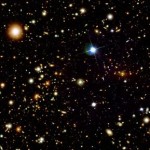 This week’s New Yorker carries an article by scholar Stephen Greenblatt on the Roman poet Lucretius, and his poem On the Nature of Things. Who remembered that it’s Lucretius who brings atomism — the theory that we are all made of the same materials, stars and earth and solar wind and trees and the human heart — to the West? And that he does this in the Dark Ages? And who but Stephen Greenblatt could make the case that this single poem changes the course of human history…?
This week’s New Yorker carries an article by scholar Stephen Greenblatt on the Roman poet Lucretius, and his poem On the Nature of Things. Who remembered that it’s Lucretius who brings atomism — the theory that we are all made of the same materials, stars and earth and solar wind and trees and the human heart — to the West? And that he does this in the Dark Ages? And who but Stephen Greenblatt could make the case that this single poem changes the course of human history…?
As a result of thinking about Lucretius & atomism, I’ve been contemplating that saying by Carl Sagan ~  ‘We are star stuff.’ While I don’t believe in any origin mythologies, I love the poetry of many. This one perhaps most of all. 🙂 As a Unitarian Buddhist, my thought is more that we begin w/ the stars and are all connected — our superficial differences really the same inside. That we share our destinies w/ the moon and stars, w/solar wind and dark matter. And that we are far more alike than different…our blood fragrant w/ the iron of mountains, the salt of oceans. It’s the best argument I know for environmentalism: we’re all part of this web. And we’re only part of it…
‘We are star stuff.’ While I don’t believe in any origin mythologies, I love the poetry of many. This one perhaps most of all. 🙂 As a Unitarian Buddhist, my thought is more that we begin w/ the stars and are all connected — our superficial differences really the same inside. That we share our destinies w/ the moon and stars, w/solar wind and dark matter. And that we are far more alike than different…our blood fragrant w/ the iron of mountains, the salt of oceans. It’s the best argument I know for environmentalism: we’re all part of this web. And we’re only part of it…
Greenblatt says that although Lucretius’ poem was lost for centuries (five, to be exact :)), ‘poems are hard to silence.’ That may be the perfect poet’s tattoo :). It resonates w/ so many poets I can never meet — dead long before I found them, but critical to who I am: Auden, Bishop, Pound; Chinese poets and Japanese poets and Rumi and Enheduanna and Lorca — so many many poets. Poems live far beyond the scope of a single human life.
 So star stuff and poetry are in my head this week. Wondering how those poets do it. Why their star stuff seems to shine so much more brilliantly. And what it was that inspired Lucretius to think about the common stuff of the universe. And finally ~ so glad, these many centuries later, that he wrote his musings down ~
So star stuff and poetry are in my head this week. Wondering how those poets do it. Why their star stuff seems to shine so much more brilliantly. And what it was that inspired Lucretius to think about the common stuff of the universe. And finally ~ so glad, these many centuries later, that he wrote his musings down ~

